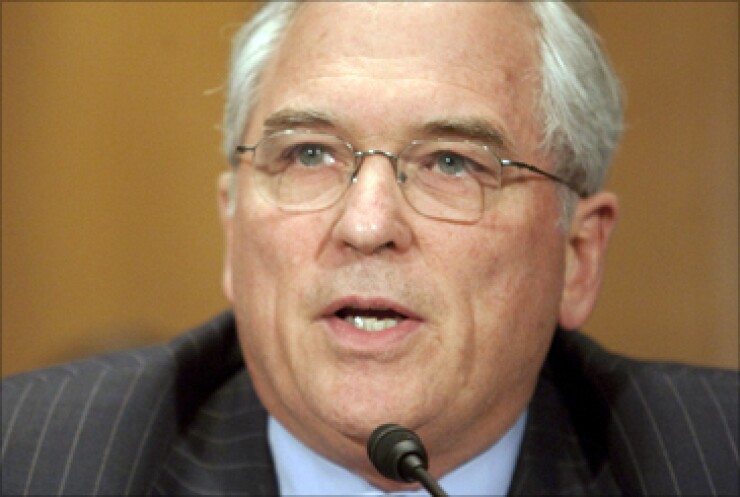
Mortgage servicer Ocwen Financial failed four servicing tests in the second half of 2014 but is “beginning to show progress” in fixing its problems, said Joseph A. Smith Jr., the monitor of the $25 national mortgage settlement.
In a report released Thursday, Smith found that Ocwen also had major shortcomings on seven other tests because of the potential harm to borrowers from its backdating of foreclosure letters.
“I visit them regularly, I talk with their management regularly, and they’re working on these issues very hard,” said Smith, a former banking commissioner of North Carolina. “We’re not taking the Ocwen situation lightly.”
The Atlanta company emphasized that the report covers conditions from last year and that a lot has changed since then.
"Ocwen is committed to being fully compliant with all rules and regulations related to our business, and we continue to invest in our risk and compliance management systems," Ocwen wrote in an email. "The specific metrics mentioned in this report are...not a reflection of our current operations."
The report marks the first time that Ocwen has been tested for compliance on its entire loan portfolio. Previous reports covered only loans serviced by Ocwen that were acquired in 2013 from Residential Capital, the former lending arm of General Motors that later belonged to Ally Financial.
Ocwen separately became a party to the mortgage settlement when it entered into a consent order with federal regulators in February 2014.
The test failures indicate that Ocwen struggled in the third and four quarters of 2014 with certain types servicing issues.
Ocwen failed tests requiring that it send accurate and timely preforeclosure letters to borrowers and that it meet standards on default-related fees such as attorneys’ fees collected from borrowers. It failed to notify borrowers of any missing documents within 30 days of a request for a short sale. It also failed to send denial notifications to borrowers that included the reason for being denied loan modifications.
Ocwen had previously failed a test on the termination of force-placed insurance and refunding premiums to affected borrowers within 15 days. That test has since been cured, the monitor said.
Ocwen came under intense regulatory scrutiny a year ago from Benjamin Lawsky, the former superintendent of New York's Department of Financial Services, for the backdating of thousands of foreclosure letters to borrowers.
The firm agreed pay $150 million to New York regulators to settle allegations that it fudged foreclosure documents and its founder and executive chairman, William Erbey, stepped down in December 2014 after 30 years with the Atlanta company.
Smith said the seven tests related to corrective actions on the letter-dating issue were necessary “to show borrowers that they are getting treated fairly and that correspondence [by Ocwen] isn’t misleading.” Ocwen will be subject to the consent order through Dec. 31, 2017. Smith expects the next report to be issued in December covering test results for the first half of 2015.
The original top four banks to the national mortgage settlement — Bank of America, Citigroup, JPMorgan Chase and Wells Fargo — have paid out all of their consumer relief, and their compliance requirements ended on Oct. 4. However, Smith will continue reporting on their performance through early 2016.




